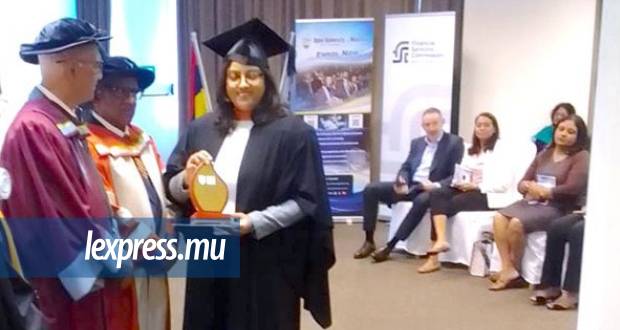Publicité
Graduate Jobs: what employers are looking for
Par
Partager cet article
Graduate Jobs: what employers are looking for

“Graduate unemployment is becoming an increasingly serious problem,” Vishal Rughoobur, senior economist at the Mauritius Employers’ Federation tells Weekly. “We have seen it on the rise for a couple of years now.” Every year, between 4,000 to 5,000 graduates are churned out by local and foreign universities and that number keeps rising every year. But, according to the Tertiary Education Commission’s (TEC) graduate tracer study released in 2012 – the last one published – an estimated 16.8 per cent of Mauritian graduates remain unemployed.
Why is that the case? According to Eric Ng, chairman of the TEC, part of the problem can be understood in terms of simple supply and demand. The fact that more universities are opening their doors locally is pushing down the costs of getting a university degree and hence leading to a glut of graduates entering the job market every year. “The idea is that as the economic cake grows, more jobs are created to absorb these graduates,” explains Eric Ng, “but the problem is that the economy is sluggish and too few jobs are being created with the result that many unemployed graduates are coming out of these local institutions.” The 2012 study found that it took roughly two years for fresh graduates to land their first jobs.
That’s not to say, however, that all graduates face the spectre of a spell of unemployment equally harshly; it also depends on the fields that they are choosing to study in. In 2012, unemployment affected 17 per cent of graduates in agriculture, 16.8 per cent in social sciences, 15.5 per cent of science graduates, but just 3.5 per cent of engineering graduates. But that’s just counting students not finding jobs. Factor in under-employment – graduates stuck with jobs not requiring a degree – and the picture becomes much more worrying. On average, an estimated 23.1 per cent of graduates are stuck in such jobs. And once again the picture varies by the type of graduate: 39 per cent of agriculture graduates, 28.6 per cent of social sciences graduates and 20.4 per cent of law and management graduates are estimated to be underemployed as opposed to just 8.8 per cent of engineering graduates. “The question has to be asked: are our universities providing the right kind of programmes?” asks Eric Ng. “A degree in history, for example, won’t lead to the same opportunities as a degree in accounting in Mauritius.”
What he says is that normally, at different times, some sectors grow faster than others with a greater appetite for graduates. “If the economy develops a greater cultural sector or tourism has an increased need for linguistics graduates, diversification breeds demand,” says Eric Ng. “It’s just that we haven’t reached that point yet.” In other words, prospective students better take a sober look at the demands of the local job market before choosing what to study, reconciling themselves to the reality that different degrees lead to different job prospects.
The issue, however, is not limited to what the graduates are studying, as much as what kind of graduates are being churned out by our universities. Didier Sim-Fat, CEO of Syynergis, argues that, increasingly, higher education is an investment that doesn’t seem to be paying off. “To take one example, the Information and Communication Technology (ICT) industry is slowing down because of a dearth of quality professionals available to fuel the industry,” Sim-Fat points out. He states that many ICT students spend their time learning equations that are no longer used in the industry. “The universities are quite simply not keeping up with what’s going on outside,” he insists. One possible way to bridge the gap, he suggests, is for ICT companies to farm out some work to the universities’ IT departments to give students some real-world experience. Then there is the problem of unrealistic expectations. “Most graduates come with unrealistic expectations,” says Rughoobur, “but then the reality of the job market hits them hard. There may be, after all, thousands of people applying for the same job.”
But this angle of expectations plays out slightly differently depending on where the graduate has studied. For example local graduates “need to show a willingness to work and not stick to the strict minimum of what a job requires,” explains Eric Ng. “Graduates returning from overseas tend to be more broad-minded and have a greater appetite for social mobility, but this translates into unrealistic salary and promotion expectations. They need to moderate their expectations somewhat.”
But it isn’t all the graduates’ fault. At some level, employers too have an expectations problem. Sim-Fat, for example, is frustrated by graduates thinking of the first job as an extension of school with the employer constantly guiding and spoon-feeding them. “We need graduates who are experienced and autonomous, who can function with minimum supervision and solve issues independently.” That translates into most Mauritian employers demanding work experience as a key criterion in hiring. “Abroad, employers would take in fresh graduates and ask them to learn on the job,” says Rughoobur. “That’s not so much the case in Mauritius with employers very often having set inflexible criteria about what kind of graduates they want.” That leads to a bit of a chicken and egg situation on the graduate job market, where a minimum of three years’ experience is necessary to be considered employable in most jobs. How are graduates supposed to get job experience if no one is willing to hire them?
“That’s one reason why many vacancies remain unfilled,” Rughoobur elaborates. “Employers simply don’t find enough of the people they want.” That conundrum is what’s leading to a new trend and onethat both employers and graduates are increasingly coming to accept. “It’s not too common right now,” Rughoobur suggests, “but internships are coming to be increasingly prominent as a solution.” For employers, it means allowing graduates to learn without much cost to the business, whereas for graduates it’s a way to get your foot in the door. And, with the sheer number of graduates coming on the job market competing for a shrinkingpool of jobs, internships will be a reality that they will have tomake their peace with. Rughooburconcludes: “Now that’s what more and more employers are willing to settle for.”
 This article appeared in Weekly’s edition of 21th to 27th august.
This article appeared in Weekly’s edition of 21th to 27th august.
Publicité
Les plus récents






